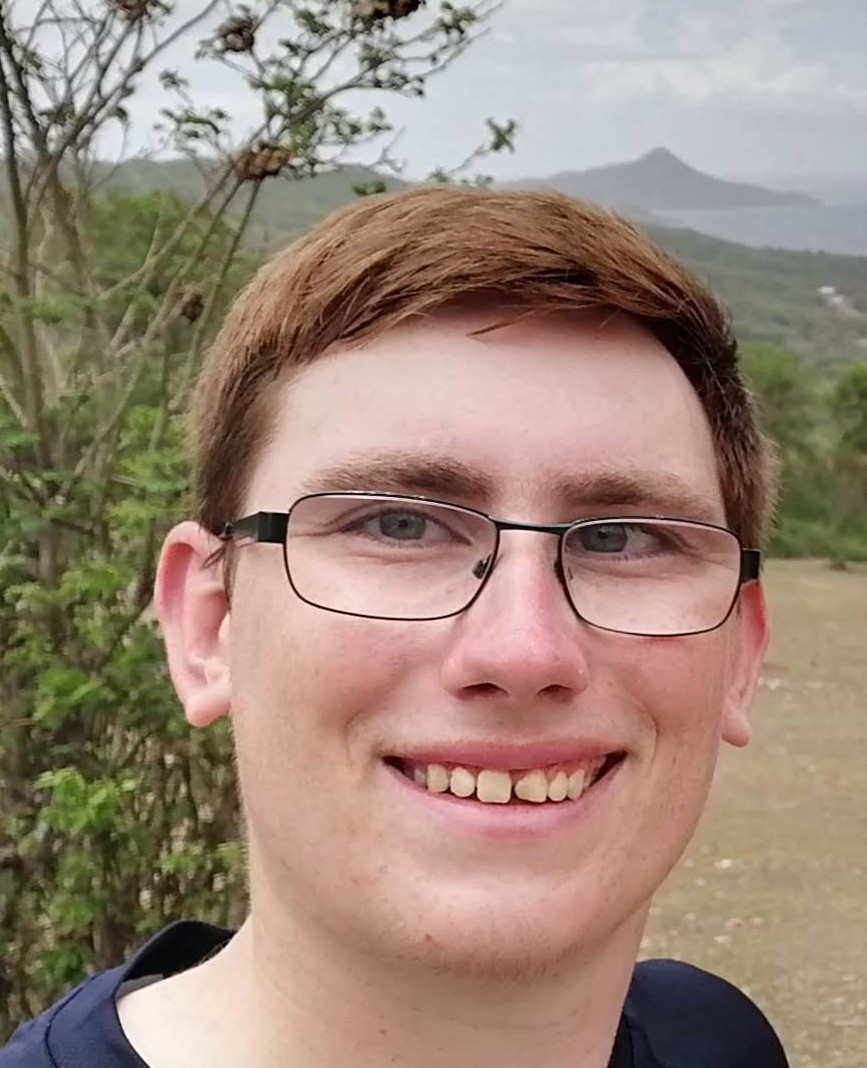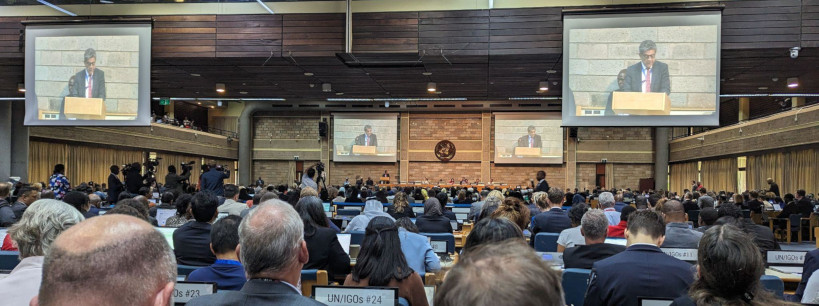
The first day of the INC-3 Plastic Treaty negotiations in Nairobi saw coalitions being formed, contention arising over how ambitious the treaty can afford to be and how best to protect international trade, and already there are concerns about running out of time before all key issues are addressed, as with INC-2. Sam Winton breaks down Monday’s key developments.
At 10.16am on Monday 13th November 2023, the third session of the Intergovernmental Negotiating Committee on Plastic Pollution in Nairobi, Kenya, was officially declared open by the Chair of the INC, Ambassador Gustavo Meza-Cuadra Velásquez, before a series of opening statements were made. Executive Secretary of the INC Secretariat Ms. Jyoti Mathur-Filipp opened by stating ‘It is up to all of us gathered here and now in Nairobi to ensure that we are on track to delivering an agreement on plastic pollution by the end of 2024’. Next, Chair of the INC, Ambassador Meza-Cuadra acknowledged the delegates collective power to address plastic pollution and demonstrate that change is possible. Executive Director of the United Nations Environment Programme, Inger Andersen emphasised the high ambition set out in resolution UNEP/EA.5/Res.14, affirming the committee’s mandate to create a comprehensive Treaty which addresses the full life cycle of plastics ‘from polymer to production, from product to packaging’ confirming that upstream measures are essential for the success of the Treaty. Finally H.E. Dr. William Samoei Ruto, President of the Republic of Kenya welcomed delegates to Kenya, affirming his nation’s commitment to ending plastic pollution and calling for the secretariat of the final Instrument to be based at UNEP headquarters in Nairobi, the one of the few UN headquarters in the Global South. Asante sana to His Excellency and the people of Kenya for their warm welcome.

The initial agenda points of the morning at plenary passed quickly, including the adoption of the provisional agenda, continued provisional adoption of the draft Rules of Procedure, and the adoption of the organisation of work for INC-3. The negotiations will be held over the next 7 days with delegations expected to be on site from 8am-10pm and the main part of the day being split into three, 3 hour sessions. Plenary meetings are held in the main conference room at UNEP headquarters. These sessions provide space for all members to gather and make decisions throughout the treaty process. The INC will also set up contact groups for members to hold in-depth discussions about elements of the Treaty. Points agreed in the Contact Groups will be brought back into the plenary for adoption into the draft text. Before Contact Groups can be formed the topics of each group must be agreed by the members at the plenary. On day 1 the draft schedule, distributed by the INC Secretariat, stated that two plenaries, followed by one Contact Group session were planned.
The members then moved onto opening statements on the zero draft text, with all members having the opportunity to share their initial views. Statements on behalf of groups of members were allowed 5 minutes while statements from individual members were allowed 3 minutes. Notably a number of groups of members shared broadly common views during these statements. When discussing the overarching principles of the Treaty, the High Ambition Coalition seek an ambitious treaty, addressing the full life cycle of plastics. Their members tended to emphasise the importance of a just transition, with a number of interventions referencing the rights of informal waste pickers. The Like Minded-Group of Developing countries, a predominantly oil producing and industrial block of developing nations, tended to emphasise the importance of plastics to human life and economic development, asking for members to take into account all views during negotiations. Other groups including the Group of African States, AOSIS, and GRULAC broadly aligned with the High Ambition Coalition on many issues though they particularly referenced the special status of SIDS, Vulnerable and Developing countries.
When intervening on considerations relating to implementation of the Treaty there was broad consensus on the need for technical assistance, capacity and modality transfer, facilitation of knowledge exchange including indigenous knowledge and the provision of a dedicated multilateral fund to support transition. Many members also stated the importance of a science based approach and the consideration of the diverse national circumstances of members. The Like Minded-Group made their view clear that implementation must not interfere with global trade, citing Rio Principle 12 which states:
Trade policy measures for environmental purposes should not constitute a means of arbitrary or unjustifiable discrimination or a disguised restriction on international trade. Unilateral actions to deal with environmental challenges outside the jurisdiction of the importing country should be avoided.
In accordance, the Like Minded-Group are strongly opposed to any production caps or any such measures which restrict trade. Many members stated their support for legally binding measures, transitional arrangements to ease the transition into the new Treaty, Extended Producer Responsibility and co-ordination with other MEAs. Many potential elements of a future Treaty received broad support including environmentally sound waste management, elimination of problematic polymers and chemicals, and design for circularity/recyclability.
A few key tensions and challenges were clear during the meeting. There continues to be disagreement over Rule 38.1 of the draft Rules of Procedure which states:
The Committee shall make every effort to reach agreement on all matters of substance by consensus. If all efforts to reach consensus have been exhausted and no agreement has been reached, the decision shall, as a last resort, be taken by a two-thirds majority of the representatives of Members who are present and voting.
The chair noted that he is continuing informal engagements with dissenting members and does not intend to spend further time on this agenda point at INC-3. Members agreed to continue to provisionally adopt the draft rules of procedure, on the understanding that Rule 38.1 will not be invoked before agreement is reached. The final procedural point addressed before the commencement of Opening Statements was the resignation of the INC Vice Chair representing the Group of Eastern European States. The regional group will propose a new vice chair for election during Sunday’s plenary session.
While a significant majority of members expressed their support for the Zero Draft, considering it to be a good starting point for negotiation which accurately reflects the views of the committee, the Like Minded-Group felt that the Zero Draft does not fully reflect their views expressed in previous INCs. Further members of the group stated that the Zero Draft prejudges decisions and significantly exceeds the mandate set out by resolution UNEP/EA.5/Res.14, again citing a perceived interference with international trade rights as a key grievance. Significant work will be needed in the Contact Groups to build a workable consensus on these issues.
Unfortunately, a key frustration of the day’s negotiations was once again that of timekeeping. While many members treated the 3 minute limit for interventions as a very loose guide, we reached the end of the afternoon plenary with at least 17 member interventions remaining in the queue, and without hearing any interventions from observers. As there is no provision for the plenary to continue into the evening and a mandate for contact groups to commence cannot be given until opening statements are concluded, an early ending to the days proceedings was drawn. We will resume the plenary with the remainder of the opening statements at 10am on Tuesday meaning that at least 1.5 days of the meeting will pass before contact groups are convened and substantive negotiations commence, an uncomfortable echo of INC-2. As Ambassador Mezo-Cuadro brought proceedings to a close, the sense on the observer’s tables at the back of the floor was one of frustration that once again substantive discussions are being delayed.
BIO
I am postgraduate researcher working for the Revolution Plastics team at the University of Portsmouth since it’s creation in 2020, and recently commencing my PhD studies ‘Exploring the development and outcomes of the global plastics treaty’ at the University of Portsmouth and the University of Surrey. With a background in environmental hazards and community preparedness, my main research focus is working with communities and a broad range of stakeholders to tackle environmental challenges. I have also conducted work with international organisations with a view to creating policies to tackle the global plastics problem, and facilitate sustainable development.
